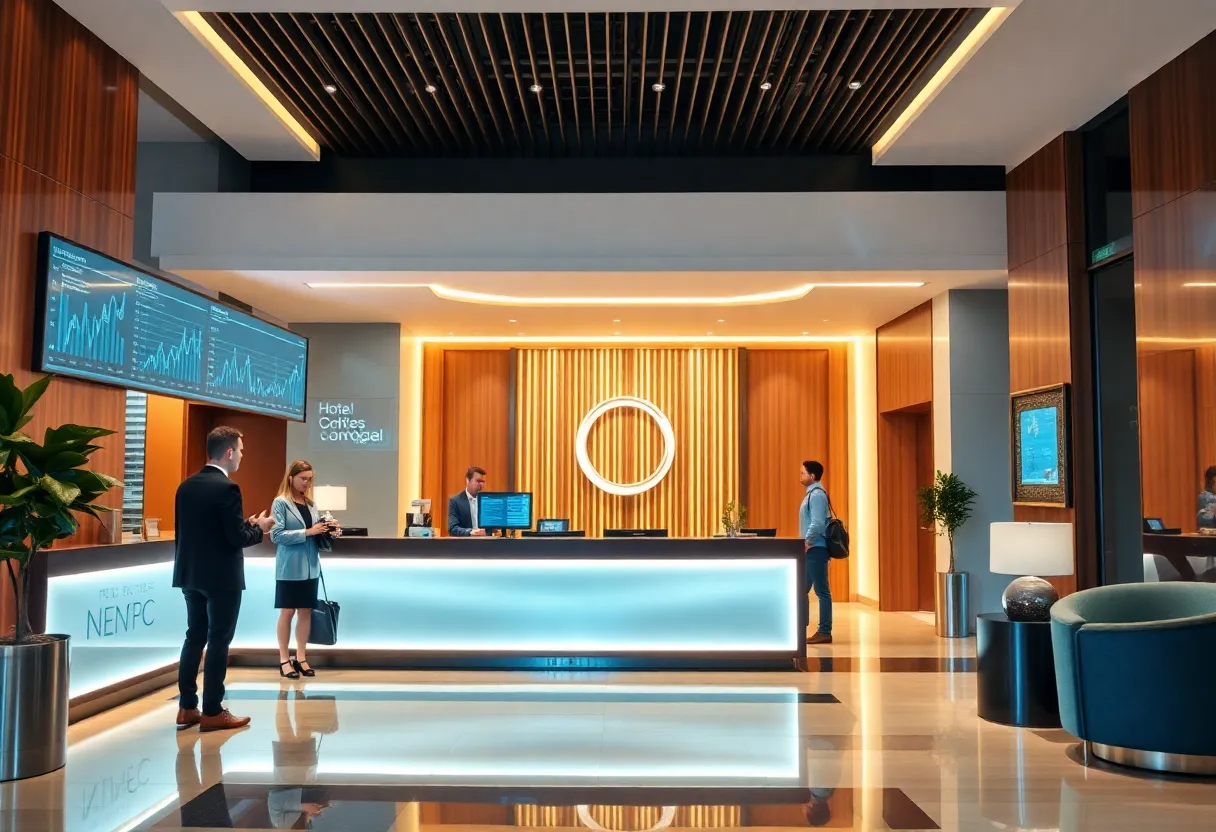News Summary
Spain’s hefty fine on Booking.com for unfair practices has prompted significant changes in the hotel industry. Hoteliers are now seeking to regain control over guest data and adjust marketing strategies amidst evolving digital regulations. As OTAs remain influential, hoteliers are exploring technology and targeted marketing to enhance direct bookings and improve their overall revenue.
Big Changes for Hotel Bookings: Spain’s Fine on Booking.com Sparks New Strategies
Recently, a significant shake-up occurred in the online travel arena when a regulatory agency in Spain imposed a hefty fine of over €413 million on Booking.com. The fine was based on allegations that the popular travel website was enforcing “unfair commercial conditions” on hotels. This landmark decision is causing many within the industry to rethink their approach to online bookings and relationships with online travel agencies (OTAs).
The Hotelier Dilemma
For many hoteliers, the relationship with OTAs like Booking.com is a bit like a double-edged sword. On one hand, OTAs are incredibly efficient for capturing bookings. They have extensive reach and visibility that individual hotels often can’t compete with. On the other hand, hoteliers are feeling increasingly frustrated over not having direct access to guest data—a valuable resource for tailoring services and marketing efforts.
In light of the recent fine, many hoteliers are turning their gaze toward technology to gather, connect, and analyze guest data more effectively. A rising number of hotel owners are realizing that to improve their operations and boost financial outcomes, they need to be able to take charge of their own guest interactions, rather than relying on third-party companies that hold onto precious consumer data.
The European Union’s Digital Markets Act
This wave of change coincides with the European Union’s Digital Markets Act, which seeks to create a more competitive digital environment. The new regulations may bring significant shifts in how businesses, including hotels, manage their digital marketing and distribution channels. As hoteliers navigate these shifts, embracing technology is becoming more critical than ever.
Connecting the Dots
During conversations at recent industry events, particularly the Phocuswright Europe gathering, experts highlighted the importance of investing in technology that enhances the guest experience while simultaneously improving customer retention. The aim is not just to capture data but to use it effectively. An interesting point raised was how many hoteliers need to take a critical view of their digital marketing budgets. Currently, social media absorbs a whopping 29% of hotel marketing budgets, but it only accounts for about 1% of total marketing revenue. This stark imbalance indicates that it might be time for hoteliers to rethink where their money is going.
Redirecting Marketing Efforts
Experts argue that hotels should consider redirecting their marketing strategies to explore more effective options, like pay-per-click (PPC) advertising. This method allows hoteliers to target specific market segments more effectively, resulting in potentially better occupancy rates and revenue. On the other hand, influencer marketing is becoming a touchy subject, especially for limited-service hotels, which find it less effective compared to luxury properties where it might increase brand awareness and bookings.
The Role of Technology
The integration of artificial intelligence (AI) and machine learning is also becoming more attractive. These technologies can help hotels analyze guest behavior, optimize pricing strategies, and improve their content distribution. With ownership of first-party data, hotels can leverage personalized marketing, crucial for engaging customers effectively.
Bringing It All Together
A common theme emerging from discussions is the need for hotels to adopt a more strategic approach to data collection. By enhancing their guest profiles, hotels can better target and engage their audience, leading to improved performance metrics. The merging of sales, marketing, and revenue management strategies signifies a deeper understanding of how these functions interconnect in today’s competitive landscape.
Looking Ahead
As we look towards the future, it’s clear that the hotel industry is transitioning. There’s a growing emphasis on optimizing direct booking channels, while simultaneously acknowledging OTAs’ role in helping consumers explore their options. Particularly in the post-COVID era, direct bookings surged initially due to safety concerns. However, travelers are now returning to OTAs in search of better deals, highlighting the ongoing challenge for hotels to balance these influences.
In this rapidly changing environment, with new players like Google becoming dominant in travel research, the need for hotels to adopt high-quality content alongside targeted paid distribution strategies has never been more evident. By doing so, hotels can enhance their marketing effectiveness while improving overall business performance.
Deeper Dive: News & Info About This Topic
HERE Resources
Additional Resources
- Phocuswire: Booking.com Fine Highlights Hoteliers’ Challenges
- Forbes: The Evolution of Hotels in the Post-COVID Era
- Skift: Reimagining Hotel Marketing Strategies Post-COVID
- Hospitality Net: What Hoteliers Need to Know About Future Bookings
- Hospitality Tech: What Hotels Need to Know About Digital Marketing in 2023








